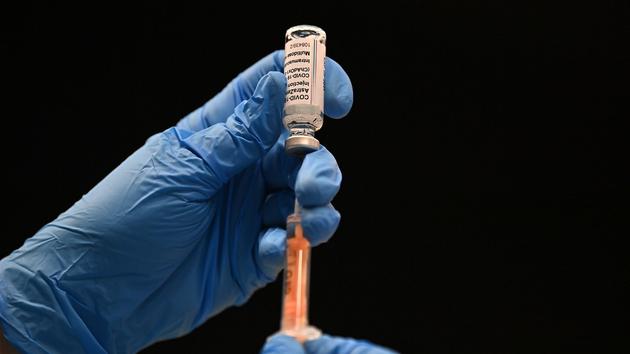A career diplomat, Pierre Ménat has followed the progress of Europe from within for more than thirty years. Adviser to two foreign ministers (Jean-Bernard Raimond and Alain Juppé), then advisor to President Chirac for Europe, twice director of European affairs at the Quai d'Orsay, he also served as French ambassador to Romania, Poland and the Netherlands. He has just published "Ten questions on post-Covidian Europe: Between mistrust and power" (L'Harmattan, Pepper, October 2020)
The Twenty-Seven decided in June 2020 to launch joint action by delegating, by unanimous agreement, to the European Commission the power to design and carry out a strategy for access to vaccination against Covid.
Objectives: to avoid national races for vaccines, to ensure equal access for European citizens to vaccine treatment and to contribute to the delivery of vaccines to the most deprived third countries (the latter component remaining "
under construction
").
To this end, the Commission entered into negotiations with the laboratories concerned to reserve doses of vaccines, knowing that their distribution among the States would be done in proportion to their population.
France would thus benefit up to 15% of all doses pre-ordered by the Commission.
In this context, agreements comprising the promise to purchase a certain number of vaccines have been concluded by the Commission, acting on behalf of the Member States, with six laboratories, in chronological order: AstraZeneca (United Kingdom, August 2020);
Sanofi (France, September);
Janssen (Belgian subsidiary of the American Johnson & Johnson, October);
Pfizer-BioNTech (USA-Germany, November and January 2021);
CureVac (Germany, November);
Moderna (USA, November).
The implementation of this joint action reveals the cumbersome nature of European decision-making mechanisms.
These contracts were concluded for a total amount of 2.1 billion euros covering pre-orders of 2.2175 billion doses, the vaccines themselves remaining the responsibility of the States.
For these agreements to enter into force, the products concerned had to receive the marketing authorization issued by the European Medicines Agency located in Amsterdam.
To date, this agency has granted such authorizations to the Pfizer-BioNtech vaccines on December 21, 2020 and Moderna on January 6, 2021. In turn, AstraZeneca has been validated on January 29, 2021. Finally, a certain amount of doses must be produced within the European Union.
This strategy has made it possible to order vaccines at a lower price and ensure minimum access to vaccines for all member states.
But the implementation of this joint action reveals the cumbersome nature of European decision-making mechanisms.
The EU ordered the doses later than states acting on a national basis, such as the UK, US or Israel.
Admittedly, they paid much more for vaccines, but they are not facing the same stockouts as the EU states.
Read also:
Vaccination: the slow and difficult conquest of legitimacy
If strong criticisms are emitted in Germany, it is because on the other side of the Rhine, one could have imagined a strategy based on a German vaccine ecosystem: purchases not limited by the European distribution and facilitated by the presence of BioNtech in Germany.
A second German vaccine, Curevac, will also soon reach its development phase.
Unfortunately, this option would not have been open for France, where Sanofi will be reduced to a role of subcontractor of Pfizer for the packaging of its vaccines.
Let us recall, however, the non-binding nature of the commitment of Member States in this strategy.
They are not required to purchase doses pre-ordered by the Commission and are in principle free to place national orders.
Without reneging on its European commitment, France retains the freedom to approve other vaccines and to order the appropriate doses of them nationally.
Moreover, the marketing authorization issued by the European Medicines Agency is not a prerequisite: the national health agencies retain the freedom to authorize vaccines not approved by the Amsterdam agency.
This means that the British strategy, the rapid implementation of which could be attributed to Brexit, could in fact have been adopted by states that remained in the EU.
Moreover, the Hungarian health agency has just approved the Chinese vaccine.
It is therefore not too late.
Without reneging on its European commitment, France retains the freedom to approve other vaccines and to order the appropriate doses of them nationally.
To read also:
"The slowness of the French vaccination is a symptom of our downgrading"
In fact, what is revealed here is the European Union's lack of initial reactivity and its lack of combativeness.
The EU could have invested very early on in an emergency fund intended to support research and vaccine production, even if it meant requiring the laboratories concerned to give high priority to intra-EU deliveries.
It is too early to pass a final judgment on this joint action.
However, we can consider that the idea was good but that its implementation arouses disappointment.
Let us keep this common framework while preserving our national autonomy in addition to a European strategy which has some efficiency but also shortcomings.












/cloudfront-eu-central-1.images.arcpublishing.com/prisa/KMEYMJKESBAZBE4MRBAM4TGHIQ.jpg)


